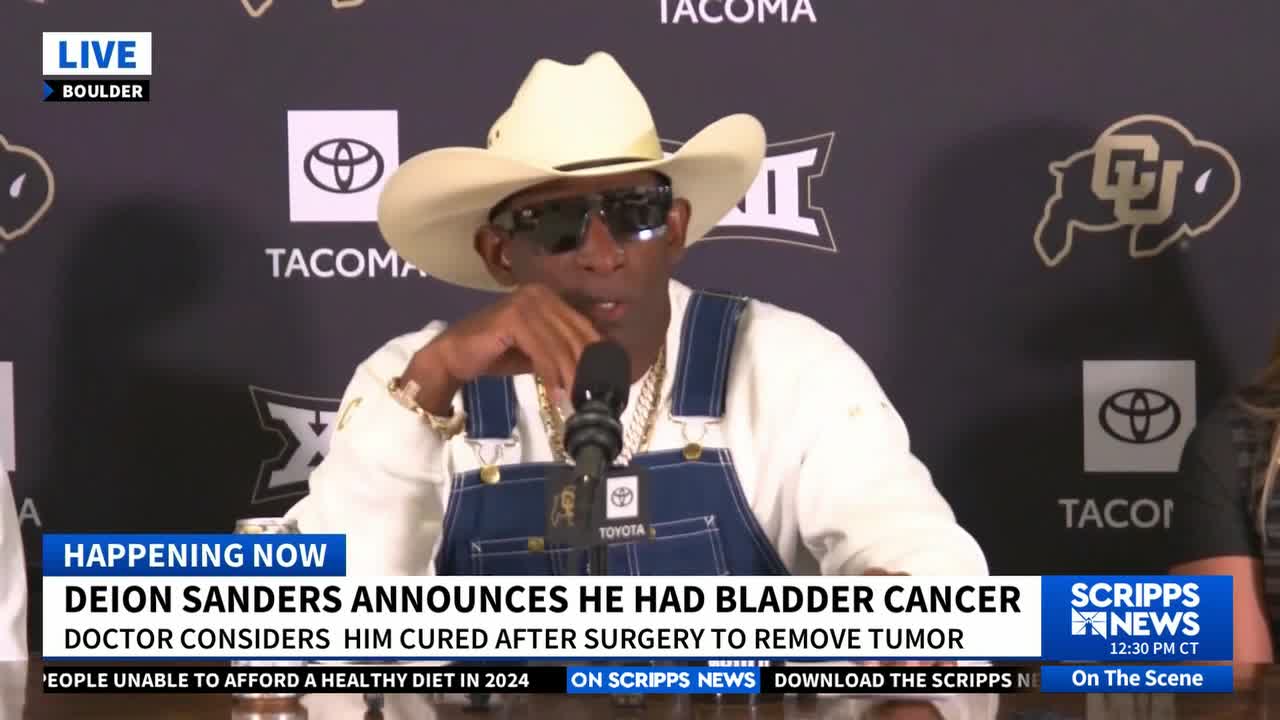University of Colorado head football coach Deion Sanders announced Monday that he was treated for bladder cancer and is now cancer-free.
Sanders held a press conference in Boulder, flanked by members of his medical team.
He said the cancer was discovered after he underwent scans for ongoing vascular issues. A urologist initially found a tumor in his bladder and referred him to a specialist for further treatment.
“We performed a full robot-assisted laparoscopic bladder removal and creation of a new bladder,” said Dr. Janet Kukreja. “And I am pleased to report that the results from the surgery are that he is cured from the cancer.”
An emotional Sanders called the experience life-altering.
“I depend on Depends, if you know what I mean. I truly depend on Depends,” he said, referring to adult diapers. “I cannot control my bladder.”
Sanders also revealed that he kept the diagnosis from some of his children so they could focus on their careers. His son, Shedeur Sanders, who was drafted earlier this year by the Cleveland Browns, is trying to make the team for the 2025 NFL season.
“My sons to this day don’t know what transpired,” Sanders said. “I just told them something with my foot again because I wanted them to focus on making the team.”
Sanders credited his faith for helping him through the ordeal and urged others to stay on top of their health.
“Please get yourself checked out — especially African American men,” he said. “We don’t like going to the doctor.”
Bladder cancer affects about 17 out of every 100,000 people, with more than 76,000 new cases diagnosed in 2022, according to the Centers for Disease Control and Prevention.




